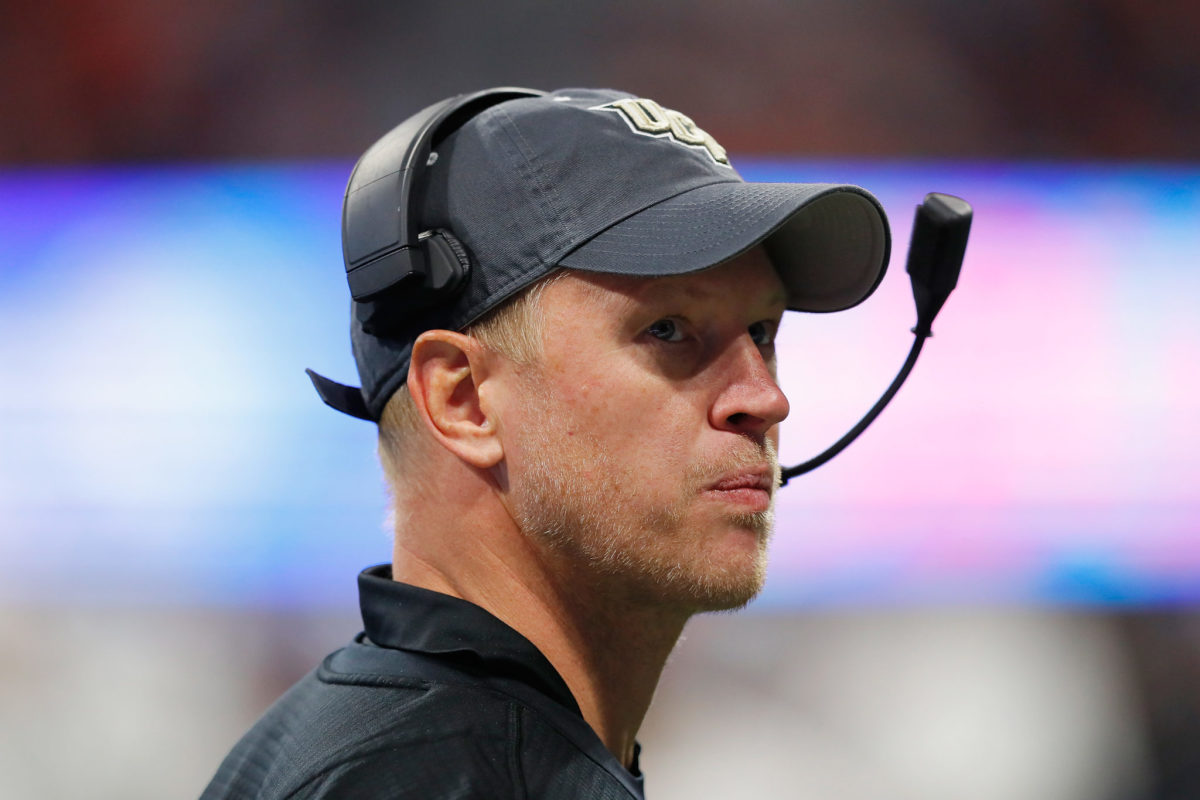
In a shocking turn of events, Scott Frost has made an unexpected return to the University of Central Florida (UCF) as their new head football coach. Just two years after leaving UCF for the University of Nebraska, Frost finds himself back in Orlando, tasked with restoring the Knights to their former glory. This move has sparked widespread reactions and raised important questions about the complexities of this decision.
Scott Frost’s first tenure at UCF was nothing short of remarkable. From 2016 to 2017, he led the Knights to a 19-7 record, including a perfect 13-0 season in 2017 and a Fiesta Bowl victory. Frost became a fan favorite and was widely credited with revitalizing the UCF football program.
Frost’s return to UCF brings a fresh perspective and renewed energy to the program. He inherits a team that went 9-4 last season under former coach Gus Malzahn but has not reached the same heights since Frost’s departure. Frost’s experience and success in his previous stint at UCF could prove invaluable in guiding the Knights back to prominence.
After a turbulent period that included Malzahn’s firing, Frost’s return offers stability and continuity to the UCF football program. His familiarity with the university, the players, and the community will allow him to hit the ground running and build upon the foundation he helped establish.
While Frost’s return brings optimism, it also comes with significant challenges and expectations.
UCF has not been the same since Frost’s departure. The Knights have won just 14 games in the past two seasons and have struggled to maintain their previous dominance. Frost will need to quickly assess the roster, identify areas of need, and recruit top talent to rebuild a competitive team.
Frost’s success in his first stint at UCF has created high expectations for his return. The fan base and administration expect him to lead the Knights to another championship run. The pressure to deliver immediate results could be a significant challenge for Frost.
The decision to bring Scott Frost back to UCF has generated mixed reactions.
Many fans, alumni, and former players believe that Frost is the perfect person to lead UCF back to the top. They point to his previous success, his familiarity with the program, and his ability to motivate and inspire players.
Others, however, question whether Frost can replicate his past achievements at UCF. They argue that the program has changed since he left and that he may not be able to adapt to the current landscape of college football.
Scott Frost’s return to UCF is a complex and intriguing development. While it brings renewed optimism and the potential for a resurgence, it also comes with significant challenges and expectations. Only time will tell whether Frost can successfully guide the Knights back to their former glory. However, one thing is clear: his return has ignited passionate discussions and a sense of anticipation among the UCF community.
Frost’s decision to return to UCF highlights the cyclical nature of college football coaching. Coaches often move between programs, seeking new challenges and opportunities. This can have significant implications for the stability and success of college football programs.
Furthermore, Frost’s return raises questions about the role of nostalgia and familiarity in decision-making. Fans and administrators may be tempted to turn to former coaches in times of uncertainty. However, it is crucial to carefully evaluate whether the past success of a coach can translate to future success in a different context.
/cdn.vox-cdn.com/uploads/chorus_image/image/23187639/167671357.0.jpg)



